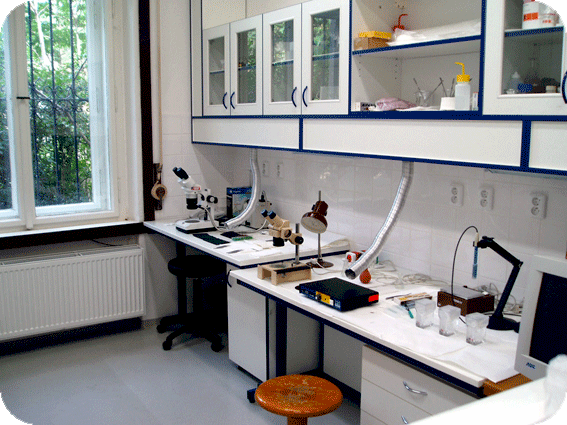Methodology
 Chromosome analysis using standard cytogenetic methods (determination of diploid chromosome number and morphology, karyogram assembly, analysis of meiotic division, analysis of constitutive heterochromatin using C-banding and fluorescent banding, visualization of NOR using AgNO3, etc.)
Chromosome analysis using standard cytogenetic methods (determination of diploid chromosome number and morphology, karyogram assembly, analysis of meiotic division, analysis of constitutive heterochromatin using C-banding and fluorescent banding, visualization of NOR using AgNO3, etc.)- Molecular cytogenetic approaches (in the field of molecular cytogenetics, we collaborate with specialized cytogenetic laboratories at the Entomological Institute of the Czech Academy of Sciences in České Budějovice, the Veterinary Research Institute in Brno, and the Institute of Animal Physiology and Genetics of the Czech Academy of Sciences in Liběchov): detection of various markers (e.g., non-coding repeats, gene clusters, complex chromosomal rearrangements) using fluorescence in situ hybridization (FISH) variants, CGH (comparative genomic hybridization)
- Flow cytometry (in collaboration with the Masaryk University in Brno): analysis of genome size and AT/GC pair ratio, differentiation of chromosome duplications and fusions, sex detection in juvenile individuals
- Arachnid cultures as a source of specimens for our analyses
Laboratory Equipment
- Two research light and fluorescent microscopes (Jenaval Zeiss and Olympus BX50 with digital CCD camera)
- Specialized cytogenetic software (CellD)
- Necessary equipment for standard as well as molecular cytogenetics (chromosome preparations, banding techniques, FISH and DNA probe preparations, etc.), binocular magnifiers, etc.





















